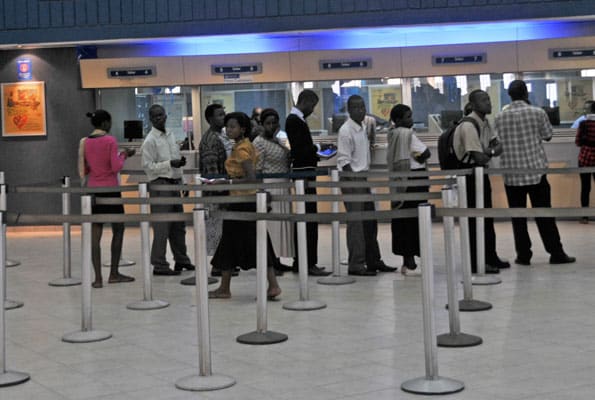Diverse moves to deepen financial inclusion has been on the rise in recent years with the enactment and development of different financial regulations, solutions, and products from key parties such as the Central Bank of Nigeria (CBN), commercial banks, and fintechs.
The CBN has shown some glimpses of this, with the award of licences to players in the agency banking space requiring them to focus the bulk of their activities in rural areas that have little access to regular banking activities.
Also, as pointed out in an earlier piece, the emergence of fintechs with cheap and affordable products across different financial sub-sectors has led to swift responses from commercial banks in a battle where the only winner would be the customers.
Suggested Read: In the battle between banks and fintechs, the customer is the only true winner
Recently, an open banking initiative and fintech sandboxes have been launched in order to create solutions that could potentially deepen financial inclusion if its objectives are realised.
In 2018, Open Banking Nigeria was launched by the Open Technology Foundation with the aim of democratising access to financial services through the harmonisation of Application Programming Interfaces (APIs) belonging to Nigerian banks.
With this, third party providers could leverage and seamlessly integrate the respective innovations of different banks, when building financial solutions. It also involves the sharing of customer permitted data, in order to better inform the development of such solutions.
In December 2019, Financial Services Innovators (FSI) launched what could be termed Nigeria’s first fintech industry innovation sandbox in partnership with the Nigeria Inter-Bank Settlement System (NIBSS) and the CBN.
WIth the NIBSS making its API available, the objective was to create a testing environment that would enable anyone with innovative ideas to safely test run them and gain knowledge of the required licences and regulations
Also recently, Ecobank launched a pan-African sandbox across 33 African countries that will feature Nigeria’s Flutterwave and Kenya’s Africa’s Talking with similar objectives of fostering financial innovation.
On relevance and sufficiency for financial inclusion
According to a report, open banking is a technology that would likely be relatively unknown outside of the financial sector but would continue to operate behind the scenes to the benefit of the consumer.
This, it says, will be done by allowing customers safely and securely connect their bank accounts, with regulated third parties that offer products and services that could range from automatic savings and discounts, or the build-up of their credit ratings.
In a study (PDF), Damola Yusuf, Partner, Technology Advisory, PwC Nigeria, and Adedeji Olowe, Trustee, Open Technology Foundation and CEO of Trium networks, suggest that by sharing data and standardised APIs with third parties, financial institutions can expand their addressable market and have a more diverse range of products than they would normally have.
Olowe points out that customers, today, can use their debit cards on any Automated Teller Machine (ATM) anywhere in the world because a card payment standard was established several years ago.
Something similar, study states, can be achieved with the use of an API standard for all banks in Nigeria.
For sandboxes, in addition to reducing the entry barrier for fintechs, Ameya Upadhyay, Principal, Investments at Flourish, believes that they can reduce the cost and time of creating new products for fintechs.
“For example, the know your customer or KYC process is a huge problem for many fintechs in Nigeria,” he says.
“Even though the bank verification number exists, to access the data behind the BVN of any customer, I need a licence, but if I’m a young startup, and I’m building a solution that requires KYC, I won’t have the money to get the licence” he adds.
According to Upadhyay, most investors will demand a startup has such a licence before putting in funds, but with a sandbox, startups can access existing APIs of established bodies and reduce the cost and time it will take to purchase a KYC licence.
For Upadhyay, some startups fail because it takes too much money and time for products to get to the market and gain widespread acceptance
However, despite the perceived benefits, there are still some reservations according to studies from the United Nations.
Her Majesty, Queen Máxima of the Netherlands, the United Nations Secretary-General’s Special Advocate for Inclusive Finance for Development, in a study of over 50 countries including Nigeria, pointed out that though a sandbox has its plus sides, they could be quite complex and costly to run.
According to the report, sandboxes may neither necessary nor sufficient to deepen financial inclusion and questions raised in such a live testing environment, could be solved through other more cost-effective means.
For instance, based on a fintech market survey carried out in Kenya, a simple hotline, or an accessible innovation office by the regulator, could solve a lot of regulatory questions that most startups face.
As an alternative to sandboxes, the report suggests that proportional or risk-based licensing regimes and regulations may help lower the costs of regulatory compliance for fintech startups.
However, in Nigeria, in terms of cost, the entry barrier has remained high for regular innovators in the fintech space without sufficient financial backing.
Olowe, in his financial predictions for 2020, speculated that open banking will be kickstarted by the CBN. Considering that regulators keep playing catch-up to innovation, could this alongside the sandbox, be an initiative that could deepen financial inclusion in the country?











